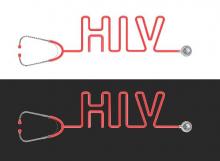The antiretroviral drug abacavir was associated with a more than twofold increased risk of cardiovascular disease in a cohort study of 8,154 HIV-infected patients.
Lead investigator Dr. Michael J. Silverberg of Kaiser Permanente Northern California, Oakland, and his colleagues followed HIV-infected adults initiating antiretroviral therapy at Kaiser Permanente during 1998-2011 until the earliest sign of coronary heart disease or ischemic stroke, health plan disenrollment, death, or the end of the study (J Acquir Immune Defic Syndr. 2016;71:413-9)
Among the 8,154 subjects, at least one cardiovascular disease (CVD) event occurred in 3.4% in the abacavir group and 2.1% in the group initiating regimens without abacavir. When initiating antiretroviral therapy, abacavir users had more renal dysfunction (7.0% vs. 3.3%, a significant difference). Compared with patients initiating regimens without abacavir, abacavir users had a 2.2-fold higher risk of CVD in an intention-to-treat analysis (hazard ratio, 2.2; 95% confidence interval [CI], 1.4-3.5), and a 2.7-fold higher risk when remaining on their initial regimens for 1 year or more (HR, 2.7; 95% CI, 1.5-5.0), and a 2.1-fold higher risk in per protocol analysis (HR, 2.1; 95% CI, 0.9-5.0).
The higher risk of CVD was not explained by preferential use of abacavir in patients with renal dysfunction or other risk factors. The excess risk of CVD in the HIV-infected study population has decreased over time, but abacavir may be one factor that continues to contribute to CVD among HIV patients, the researchers said.
“Like tenofovir, for which physicians must weigh the benefits of the medication against risk of nephrotoxicity, physicians prescribing abacavir must now consider its benefits and general tolerability in light of evidence of CVD risk,” they concluded.
Read the full study in JAIDS (J Acquir Immune Defic Syndr. 2016;71:413-9)
On Twitter @richpizzi



